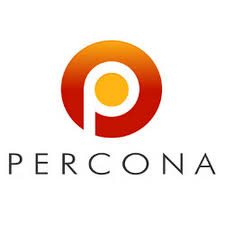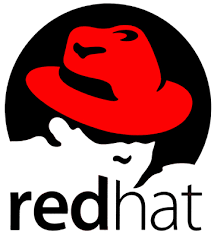scalability
See the following -
Investigating Blockchain's Role in Health Info Exchange
Federal regulators are considering the role that blockchain technology could play in advancing the secure exchange of healthcare information, says Steve Posnack of the Office of the National Coordinator for Health IT. Blockchain - an open source distributed ledger technology that's associated with the cryptocurrency bitcoin - "has a lot of different potential implementations, and I think its diversity in how it can be implemented is one of the attractive features. It's not just a one-trick pony," he says in an interview at the HIMSS17 conference in Orlando...
- Login to post comments
Merger of TranSmart, i2b2 Aims to Provide Informatics Boost to Precision Medicine Efforts
 As genomic tools continue to make their way from the research lab into clinical practice, the recently announced merger between the TranSmart Foundation and the Informatics for Integrating Biology and the Bedside (i2b2) aims to provide researchers and clinicians with an open-source resource that could benefit precision medicine efforts. Earlier this month, the two organizations announced their plans to combine into a single foundation focused on providing open-source biomedical software and databases for precision medicine...
As genomic tools continue to make their way from the research lab into clinical practice, the recently announced merger between the TranSmart Foundation and the Informatics for Integrating Biology and the Bedside (i2b2) aims to provide researchers and clinicians with an open-source resource that could benefit precision medicine efforts. Earlier this month, the two organizations announced their plans to combine into a single foundation focused on providing open-source biomedical software and databases for precision medicine...
- Login to post comments
Microsoft Eyes Hybrid Open Source Approach to Public Sector Work
Microsoft is increasingly looking at a hybrid approach that takes advantage of both proprietary enterprise IT and open source technologies for public sector projects to better meet the needs of customers in a multi-platform technology environment. Michael Wignall, national technology officer at Microsoft UK, said that despite being a company long associated with proprietary software and technology changing user needs had facilitated a switch towards providing solutions that offer at least some open source components in the area of Android devices and other platforms...
- Login to post comments
MIT and DARPA Pack Lidar Sensor Onto Single Chip
 Light detection and ranging, or lidar, is a sensing technology based on laser light. It’s similar to radar, but can have a higher resolution, since the wavelength of light is about 100,000 times smaller than radio wavelengths. For robots, this is very important: Since radar cannot accurately image small features, a robot equipped with only a radar module would have a hard time grasping a complex object. At the moment, primary applications of lidar are autonomous vehicles and robotics, but also include terrain and ocean mapping and UAVs...
Light detection and ranging, or lidar, is a sensing technology based on laser light. It’s similar to radar, but can have a higher resolution, since the wavelength of light is about 100,000 times smaller than radio wavelengths. For robots, this is very important: Since radar cannot accurately image small features, a robot equipped with only a radar module would have a hard time grasping a complex object. At the moment, primary applications of lidar are autonomous vehicles and robotics, but also include terrain and ocean mapping and UAVs...
- Login to post comments
NSA's Big Data Platform Faces Enterprise Test
Accumulo, the data storage software developed by the National Security Agency, has taken another step toward the enterprise market. Sqrrl, the startup launched by former NSA technologists to commercialize Accumulo, has teamed up with Apache Hadoop provider Hortonworks to combine their technologies. Read More »
- Login to post comments
Percona Announces Conference Session Schedule for the Sixth Annual Percona Live Open Source Database Conference 2017
 Percona, the company that delivers enterprise-class MySQL® and MongoDB® solutions and services, today announced that the conference session schedule for the sixth annual Percona Live Open Source Database Conference 2017, taking place April 24-27, 2017, at the Hyatt Regency Santa Clara and Santa Clara Convention Center. Sponsorship opportunities are still available, and Advance Registration Discounts can be purchased through March 5, 2017, 11:30 p.m. PST. The Hyatt Regency Santa Clara has a block of rooms reserved for attendees until March 23, but they are going fast...
Percona, the company that delivers enterprise-class MySQL® and MongoDB® solutions and services, today announced that the conference session schedule for the sixth annual Percona Live Open Source Database Conference 2017, taking place April 24-27, 2017, at the Hyatt Regency Santa Clara and Santa Clara Convention Center. Sponsorship opportunities are still available, and Advance Registration Discounts can be purchased through March 5, 2017, 11:30 p.m. PST. The Hyatt Regency Santa Clara has a block of rooms reserved for attendees until March 23, but they are going fast...
- Login to post comments
Proof that Openness Scales
 Recently I've had the immense pleasure of discovering Slalom Consulting, and I was fascinated to learn how they do open. Aaron Atkins and Shannon Heydt, both working in talent acquisition for Slalom, sat down with me to share challenges related to scalability—and explain how recruiting and talent management play a strong part in shaping company growth. Slalom's case is rich and illustrative. But to understand it, we must first understand scabaility. Scalability is the ability of something to adapt to increasing demands. Meeting your business demands starts with your people and frameworks far before you fulfill a service or product...
Recently I've had the immense pleasure of discovering Slalom Consulting, and I was fascinated to learn how they do open. Aaron Atkins and Shannon Heydt, both working in talent acquisition for Slalom, sat down with me to share challenges related to scalability—and explain how recruiting and talent management play a strong part in shaping company growth. Slalom's case is rich and illustrative. But to understand it, we must first understand scabaility. Scalability is the ability of something to adapt to increasing demands. Meeting your business demands starts with your people and frameworks far before you fulfill a service or product...
- Login to post comments
Public Health Tech: The Future of Health Tech You Never Heard Of
Digital Health has experienced a glorious boom in the last decade and is expected to reach $379.3 Billion by 2024 with 25% of the growth occurring between 2016 and 2024. Patient management can now be done on user-friendly platforms; physicians can remotely monitor their patients with mobile devices and telemedicine; and personal trackers and genetic testing are allowing patients easier access to their own health data. Clearly, we understand the kind of power technology has on improving the delivery of care and management of disease...
- Login to post comments
Red Hat Announces Health IT Infrastructure Improvements
Red Hat announced that Molecular Health deployed Red Hat Enterprise Linux for SAP HANA to support its new precision medicine analytics platform, Molecular Health GuideTM (MH Guide), helping the tool be better integrated into health IT infrastructure. MH Guide provides healthcare organizations with a knowledge base of pre-interpreted information from millions of medical publications. This knowledge base gives clinicians access to more data so they can make more accurate diagnoses...
- Login to post comments
Red Hat Unveils Industry’s First Production-Ready Open Source Hyperconverged Infrastructure
 Red Hat, Inc., the world's leading provider of open source solutions, today introduced Red Hat Hyperconverged Infrastructure, the industry’s first production-ready fully open source hyperconverged infrastructure (HCI) solution. By combining innovative virtualization and storage technologies with a stable, proven operating platform, Red Hat Hyperconverged Infrastructure is designed to help enterprises to bring datacenter capabilities into locations with limited space, such as branch offices and other remote facilities...
Red Hat, Inc., the world's leading provider of open source solutions, today introduced Red Hat Hyperconverged Infrastructure, the industry’s first production-ready fully open source hyperconverged infrastructure (HCI) solution. By combining innovative virtualization and storage technologies with a stable, proven operating platform, Red Hat Hyperconverged Infrastructure is designed to help enterprises to bring datacenter capabilities into locations with limited space, such as branch offices and other remote facilities...
- Login to post comments
Success Of GNU Health Goes Beyond Free Software
In 2006, Luis Falcón founded GNU Health, a free health information system that recently recieved the "Best Project of Social Benefit" award given by the Free Software Foundation. Read More »
- Login to post comments
Suddenly It’s All About The APIs
[...Turns] out I’ve got a number of events coming up where I’m on tap to discuss the emergence of “APIs” in Health and what it might mean for interoperability and adoption. The first of these is tomorrow at ITdotHealth at Harvard; great to follow-up the meeting that kicked off so much of the “Health Internet” movement back in 2009! Read More »
- Login to post comments
Telemetry – Reboot, Firefox OS, Probe Expiration
Telemetry has seen a resurgence of development of late due in large part to the reboot of the server side component. A group of us gathered in Portland last week to hack on Telemetry concepts (and code). I would like to share three updates: Telemetry project reboot, Telemetry for Firefox OS, and Telemetry probe expiration. Read More »
- Login to post comments
Testing 1-2-3: Open-Source Tools To Ensure Quality Applications
When the HealthCare.gov rollout did not quite go according to plan, much was made about the absence of “testing.” There have been myriad newspaper columns, cable talk show segments, even exchanges at congressional hearings dedicated to the topic. Though the attention is gratifying to a software guy like me, implicit in the discussion is the premise that testing is a monolithic activity to be performed once development is complete. Read More »
- Login to post comments
The Blockchain Interview with Jason Goldwater
 There are three, initially, that it has the potential to solve. First is access to data. The way that systems have been set up in hospitals or large integrated physician networks is that the data will either reside in a centralized server or now the trend is to reside it in a cloud. That’s fine and that certainly has been effective, but you’re talking about a large consolidation of data in a centralized location. Blockchain is very different because it is what is known as distributed ledger technology...
There are three, initially, that it has the potential to solve. First is access to data. The way that systems have been set up in hospitals or large integrated physician networks is that the data will either reside in a centralized server or now the trend is to reside it in a cloud. That’s fine and that certainly has been effective, but you’re talking about a large consolidation of data in a centralized location. Blockchain is very different because it is what is known as distributed ledger technology...
- Login to post comments